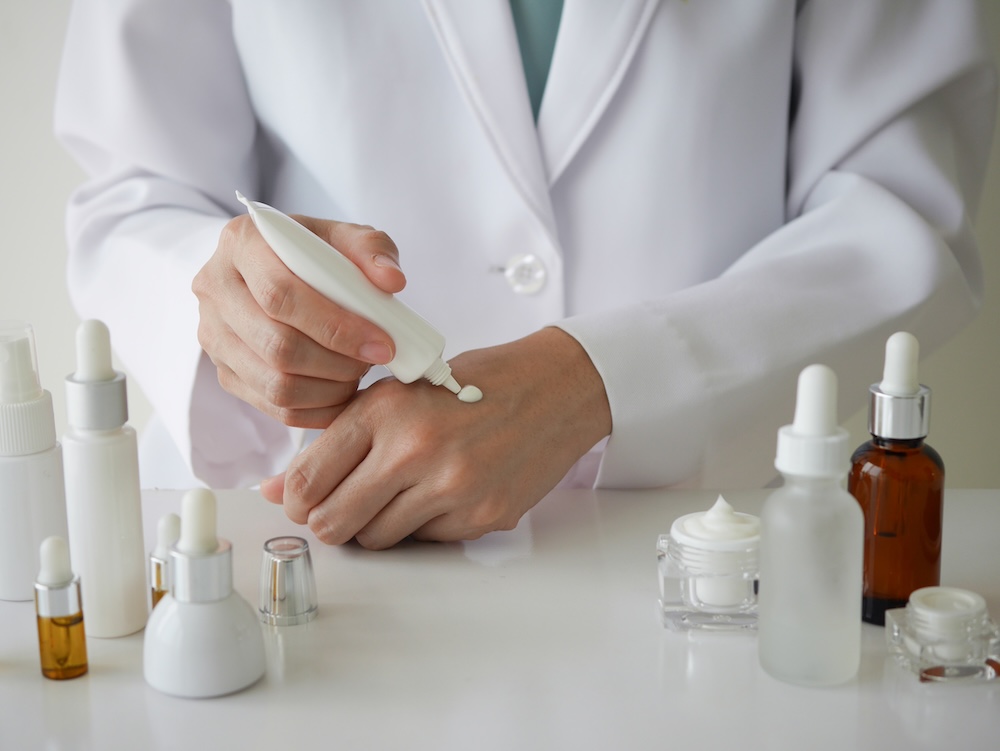As a compounding pharmacy, we have the privilege of working with a wide range of medical providers to help patients access personalized medications that are tailored to their specific needs. Compounding pharmacies offer an important service, particularly for people who require medications in a customized dosage, or in forms that are not available commercially.
Medical Providers Who Use Custom Medications
The benefits of compounded medications are considerable, and numerous medical providers turn to compounding pharmacies to provide their patients with the best possible care. Let’s explore the types of providers that commonly work with compounding pharmacies, and how we collaborate to meet the unique health needs of patients.
1. Primary Care Providers (PCPs)
Primary care providers are often the first point of contact for patients seeking medical treatment. Whether it’s for chronic conditions, hormone imbalances or acute illnesses, PCPs rely on compounding pharmacies to provide individualized treatment options that are not available in traditional, commercially prepared medications. Compounding pharmacists can work with PCPs to create medications with specific ingredients, dosages, or delivery forms that suit the patient’s needs.
For instance, a PCP may prescribe compounded bioidentical hormone replacement therapy (BHRT) for a patient experiencing menopause symptoms. By customizing the hormones and dosages to the individual, the physician ensures a customized and more effective treatment plan. Additionally, patients with allergies to certain medications or excipients can benefit from compounded formulations that exclude those allergens.
2. Dermatologists
Dermatologists frequently collaborate with compounding pharmacies, especially when patients require specialized treatments for skin conditions. Compounded dermatological medications can include custom-strength topical creams, gels or ointments for conditions like acne, eczema, psoriasis or rosacea.
3. Integrative and Functional Medicine Providers
Integrative and functional medicine practitioners focus on treating the whole person, considering both traditional and holistic approaches to healthcare. Compounding pharmacies align well with this philosophy by offering customized treatments that address the root causes of health issues. These providers commonly utilize compounded medications for a variety of health conditions, including chronic fatigue, hormonal imbalances, nutritional deficiencies and digestive disorders.
For example, an integrative medicine provider might prescribe a compounded formula of vitamins, minerals and herbal supplements to support detoxification or help balance a patient’s adrenal function. Since these practitioners often take a more individualized approach to health, they rely on compounding pharmacies to prepare medications that are uniquely suited to each patient’s specific needs.
4. Veterinarians
Veterinarians are another group of medical providers that benefit greatly from working with compounding pharmacies. Like people, animals sometimes require medications in doses or forms that are not commercially available. Compounding pharmacies help veterinarians by providing customized medications for pets, ranging from different dosages to flavored formulations that are easier for animals to ingest.
For example, a veterinarian may need a certain medication for a dog with arthritis, and the commercially available medications may not be appropriate for the dog’s size or weight. A compounded formula can be prepared with the correct dosage and best form (such as a chewable tablet or liquid) to make it more palatable for the pet. Compounded medications can also be customized for specific conditions like infections, allergies, and hormonal imbalances in animals.
5. Pediatricians
Pediatricians work with compounding pharmacies to ensure that children receive medications in doses that are safe and appropriate for their age and weight. Since children often cannot swallow pills or have trouble with large tablets, compounded medications can be delivered in forms like liquids, suspensions or flavored syrups, making it much easier for them to take their medicine.
For example, a pediatrician may prescribe a compounded medication for a child with a chronic condition (such as asthma or ADHD) in a lower-dose liquid form that is easier for the child to tolerate. Similarly, if a child has allergies to certain inactive ingredients commonly found in commercial medications, a compounded formula can exclude those ingredients while still providing the necessary therapeutic effect.
6. Podiatrists
Podiatrists specialize in treating conditions of the feet and lower extremities, and often collaborate with compounding pharmacies to provide personalized treatments for a wide range of foot ailments. These include fungal infections, wounds, diabetic ulcers, inflammatory conditions and more. Compounded medications allow podiatrists to create formulations tailored to the patient’s specific needs, ensuring effective and targeted treatment.
Why Use a Compounding Pharmacy?
Compounding pharmacies play a vital role in modern healthcare, partnering with a variety of medical providers to offer customized treatment options that are not available with standard commercial medications. Primary care providers, dermatologists, integrative and functional medicine practitioners, veterinarians, pediatricians and podiatrists all benefit from the personalized services that compounding pharmacies offer. By working together, we can create medications that better meet the individual needs of patients, ultimately improving outcomes and quality of life.
It’s important to understand that standard medications don’t always fit every patient. Compounding pharmacies provide solutions by customizing dosages, removing allergens, and offering alternative forms when commercial options are limited or discontinued. This flexibility helps patients get the care they need when traditional medications fall short.
If you’re a healthcare provider interested in learning more about how compounding pharmacies can benefit your patients and your practice, contact Eli Pharmacy. Together, we can help you find the best solutions for your patients’ unique medical needs.
Compounding Pharmacy Services in Johns Creek, GA
Eli Pharmacy works hand-in-hand with medical providers to ensure seamless, personalized care. Ask your healthcare team about partnering with us, or contact us to see how we can support your treatment plan. Call Eli Pharmacy at (678) 835-9997, or contact us with questions today.





